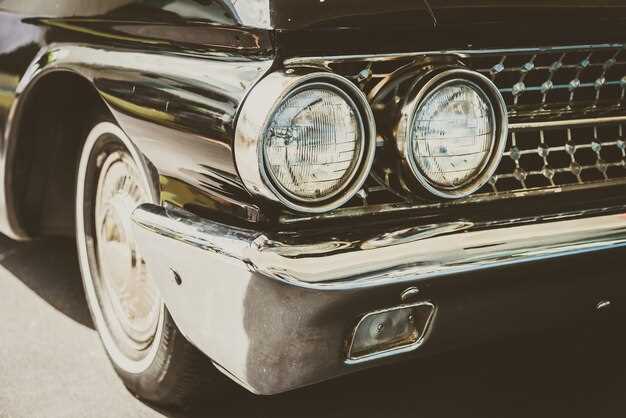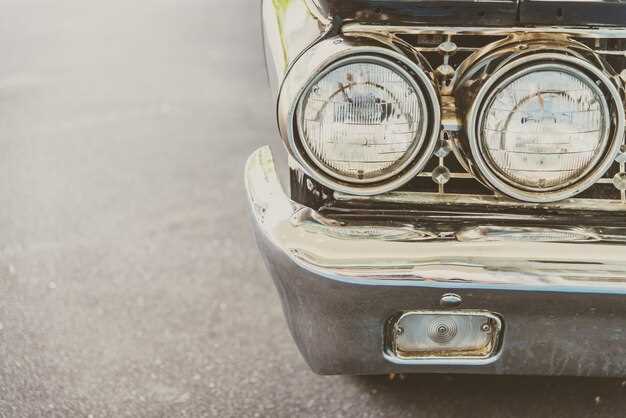
Investing in classic cars has become a popular trend among collectors and enthusiasts alike. The allure of owning a piece of automotive history, combined with the potential for significant financial returns, makes this niche market particularly appealing. However, like any investment, it is crucial to understand both the risks and rewards involved before diving into the world of classic automobiles.
On one hand, classic cars can appreciate significantly over time, especially models that are rare, in excellent condition, or have historical significance. Some investors have seen returns that far exceed the stock market, making classic cars a viable alternative investment. On the other hand, this market is fraught with challenges. Factors such as maintenance costs, market demand fluctuations, and the potential for counterfeit cars can threaten your investment’s value. Thus, understanding the complexities of this market is essential for any potential investor.
This article aims to elucidate the inherent risks of investing in classic cars as well as the juicy rewards that can accompany a well-informed purchase. By evaluating market trends, assessing car conditions, and considering the long-term prospects of ownership, investors can make more informed decisions that could lead to both personal satisfaction and financial gain.
Investing in Classic Cars: Risks and Rewards Explained
Investing in classic cars can be a lucrative venture but comes with its own set of challenges and uncertainties. Understanding the potential rewards and risks associated with this type of investment is crucial for making informed decisions.
One of the primary rewards of investing in classic cars is the potential for significant appreciation in value. Well-preserved and iconic vehicles can gain value over time, especially as they become rarer. Certain models, particularly those with historical significance or limited production runs, have been known to appreciate substantially, often outperforming traditional investments such as stocks or bonds.
Another benefit is the enjoyment factor. Unlike stocks or real estate, classic cars can be physically appreciated and enjoyed. They can be driven, showcased at car shows, and admired for their engineering and design. This aspect makes classic car ownership unique compared to other investment types, providing a personal connection and passion for the asset.
However, investing in classic cars also involves several risks. The automotive market can be volatile, and values can fluctuate based on trends, economic conditions, and buyer preferences. An investment that seems promising can quickly depreciate if the market shifts or if the car falls out of favor.
Maintenance costs also pose a risk. Classic cars often require more frequent and specialized repairs compared to modern vehicles. These costs can eat into potential profits and, if not managed carefully, can lead to significant financial losses. Furthermore, the costs of insurance and storage must be considered, adding to the overall investment burden.
Additionally, there is a risk of fraud and misrepresentation. Buyers need to conduct thorough due diligence to ensure the authenticity and provenance of a vehicle. Restoration quality and documentation are vital in determining a car’s value, and lack of transparency in these areas can lead to costly mistakes.
In conclusion, investing in classic cars offers a unique blend of potential financial reward and personal satisfaction, but it is essential to approach this market with caution. By understanding the risks and taking appropriate measures to mitigate them, investors can navigate the classic car landscape more effectively and potentially reap the benefits of their investment.
Assessing the Financial Upsides of Classic Car Investments
Investing in classic cars can yield substantial financial benefits, driven by factors such as rarity, historical significance, and market demand. Classic cars often appreciate in value over time, particularly those that are well-maintained, have limited production numbers, or are associated with notable history or collectors. This appreciation can lead to considerable gains when sold at the right price and time.
One of the primary financial upsides is the potential for capital appreciation. Many classic cars have shown significant value increases over the years, outperforming traditional investments like stocks and bonds. Collectors often seek vehicles that are not only rare but also possess unique characteristics, leading to a robust secondary market that can drive prices higher.
Moreover, classic cars can offer an enjoyable and tangible investment experience. Unlike stocks or bonds, the investor has the opportunity to personally appreciate the beauty and craftsmanship of a classic vehicle. This personal attachment can enhance overall satisfaction and make the investment feel less abstract.
Tax advantages also play a role in the financial attractiveness of classic car investments. In some jurisdictions, capital gains taxes on collectibles may be lower compared to standard investment vehicles, potentially increasing net returns. Additionally, classic cars can be part of an estate planning strategy, allowing for tax-efficient transfer of wealth to heirs.
Finally, investing in classic cars can provide income opportunities through car shows, exhibitions, and rentals for events. Enthusiasts often pay handsomely for the chance to experience or showcase vintage vehicles, creating avenues for generating passive income while holding the investment asset.
Recognizing and Mitigating Potential Risks in Classic Cars

Investing in classic cars can be a rewarding venture, yet it is essential to recognize the potential risks involved in this market. One of the primary risks is the fluctuating value of classic cars. The market can be unpredictable, with values influenced by trends, buyer interest, and economic conditions. Potential investors should stay informed about market trends and seek expert appraisals before making a purchase.
Another significant risk is the condition of the vehicle. Classic cars require regular maintenance and can suffer from age-related issues such as rust, engine problems, and worn-out parts. Prospective buyers should conduct thorough inspections, preferably with a professional mechanic familiar with classic cars, to identify any hidden problems that could lead to costly repairs.
Documentation is crucial in the classic car market. Lack of proper documentation, including maintenance records and authenticity certifications, can devalue a car significantly. Investors must ensure that all relevant paperwork is available and verify the vehicle’s history through resources like vehicle identification numbers (VIN) and historical records.
Moreover, storage conditions pose a risk to classic car longevity. Vehicles stored improperly can experience degradation, especially in terms of paint, mechanical components, and interior materials. Investing in proper storage solutions, such as climate-controlled garages, can help mitigate this risk.
Insurance is another vital consideration. Standard auto insurance may not cover classic cars adequately. Investors should seek specialized classic car insurance that considers the car’s true market value and provides coverage against risks specific to vintage vehicles.
Lastly, market liquidity presents a challenge. Classic cars are not as easily sold as modern vehicles, potentially leading to longer holding periods. Investors should have an exit strategy in place and be prepared for potential delays in selling their vehicles, ensuring they possess the financial resilience to manage ongoing costs during this period.
Navigating the Market: Tips for Smart Classic Car Purchases

Investing in classic cars can be both rewarding and risky. To maximize your chances of making a profitable purchase, consider the following tips:
- Do Your Research
Familiarize yourself with the specific make and model you are interested in. Study price trends and the history of the vehicle to understand its market value.
- Determine Your Budget
Set a clear budget that encompasses not only the purchase price but also restoration costs, storage, insurance, and maintenance. Stick to your budget to avoid overspending.
- Consider the Condition
Evaluate the car’s condition carefully. Look for issues such as rust, engine problems, and bodywork inconsistencies. Getting a professional inspection can save you from costly surprises.
- Verify Authenticity
Check the vehicle’s VIN (Vehicle Identification Number) to ensure its authenticity. Ensure that all documentation matches the car and that it doesn’t contain modifications that affect its value.
- Consult Online Communities
Join classic car forums and online communities. These platforms often provide valuable insights, market trends, and opinions from experienced collectors and enthusiasts.
- Attend Auctions and Shows
Participate in classic car auctions and shows. This allows you to see a variety of vehicles firsthand, network with sellers, and gain a better understanding of market conditions.
- Negotiate Wisely
Don’t accept the asking price without negotiation. Use your research on the car’s condition and market trends to justify your offer. Be prepared to walk away if necessary.
- Focus on Proven Investment Vehicles
Some makes and models have consistently appreciated in value. Research these vehicles, as they may provide a safer investment route.
By following these tips, you can navigate the classic car market more effectively and make informed decisions that could lead to a successful investment.
